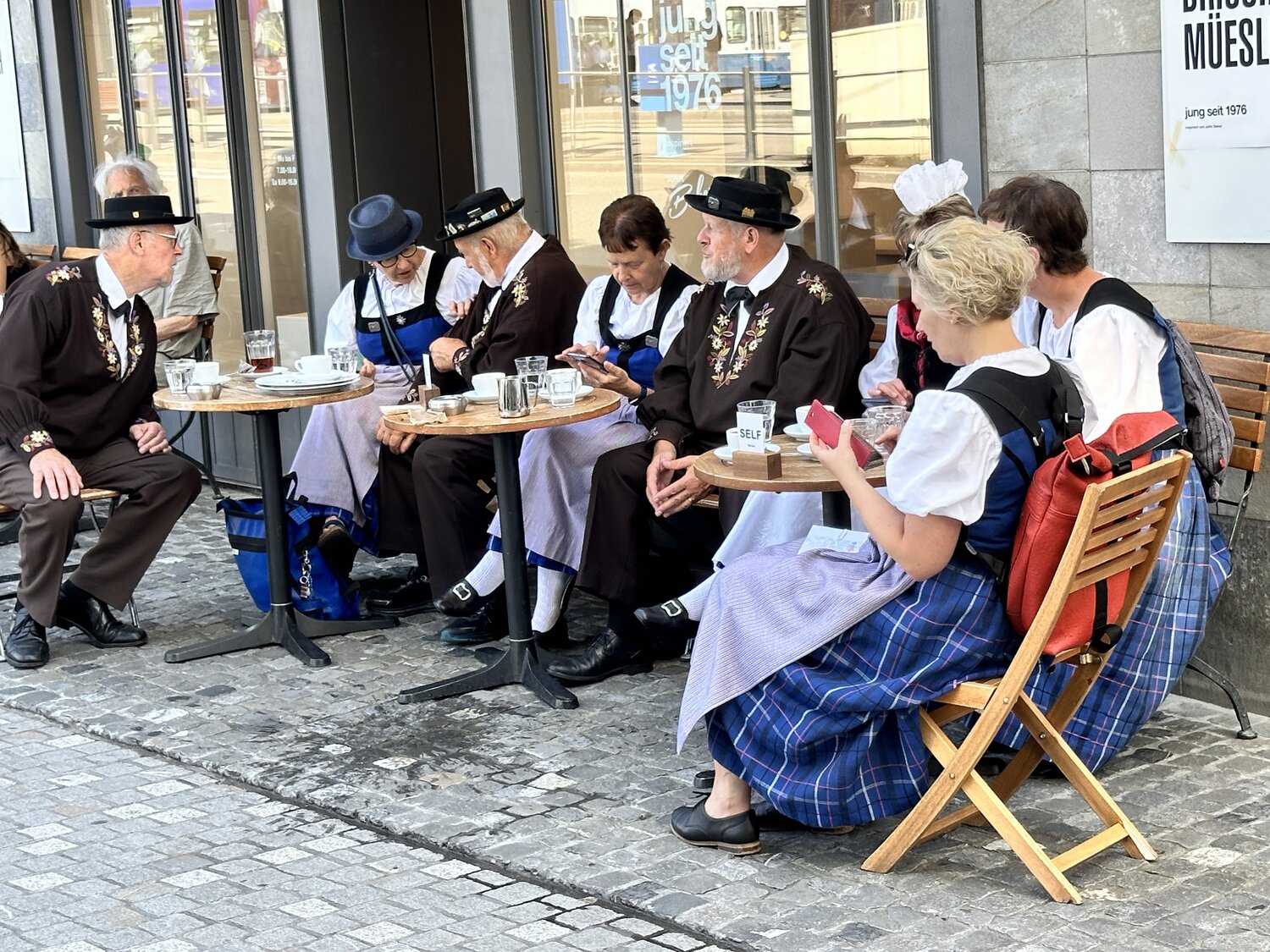Zurich - International Conflict Research
.jpeg)
Ah, Switzerland. Clean. Public transportation so good you don’t need a car - trains and trams will take you wherever you need to go. Bern was a great home base for us. Yes, the architecture is staid and almost Soviet at times, but the constant activity and friendly people made it all worth while. And being there to hear and see the celebration when Switzerland beat Italy in a game in the UEFA European Championship (soccer) was a bonus.
And before i get to Zurich, we traveled to Grindelwald, an idyllic town high in the alps. I had always wanted a day where I was just surrounded by the alps, immersed in them, and we had that in Grindelwald. We went on a hike - I misread the app, which suggested the 3.7 mile hike through the alps would include an elevation of 300 feet, and off we went. We took the cable car up to a station and started the hike at 5300 feet up, over a mile. Well, we climbed, and climbed (“this has to be more than 300 feet!”) and we finally, after hours, reached the top cable car station for the ride back down. I checked the altimeter. 7300 feet! We had climbed 2000 feet on this little hike. But the views, well -



Then I met with a team of five people from different programs - Eemeli Isoaho and Inbal Ben Ezer from the Master of Advanced Studies, Mediation in Peace Process group, and Simon Mason, Joane Hollinger, and Katrina Abatis of the Mediation Support Team. Enjoyed the meeting thoroughly - they were full of suggestions and advice, such as the importance of building mediation work through multiple disciplines (public health, theology, political science) and balancing academics and practice. Simon ennobled my mission by stating I was on a “vision quest” and needed to start with the big picture - where do I want the center to contribute? The group appreciated that my center will begin with a focus on US domestic conflict, and only broaden to international conflict later. As Katrina stressed, peace work is too often seen as something “over there,” in another country. Peace work starts at home.
I realized after meeting with these groups in Basel and Zurich - and in my interactions with others as I try to arrange my visits - that a special kind of person makes it their live’s mission to do peace work. People have been generous and forthcoming, welcoming of a new center by a person unknown and untrained in their field. I think I made a wise choice dedicated this coda to my career in building a center for such important work, and becoming colleagues to such impressive and kind people.

NEXT
PREVIOUS


